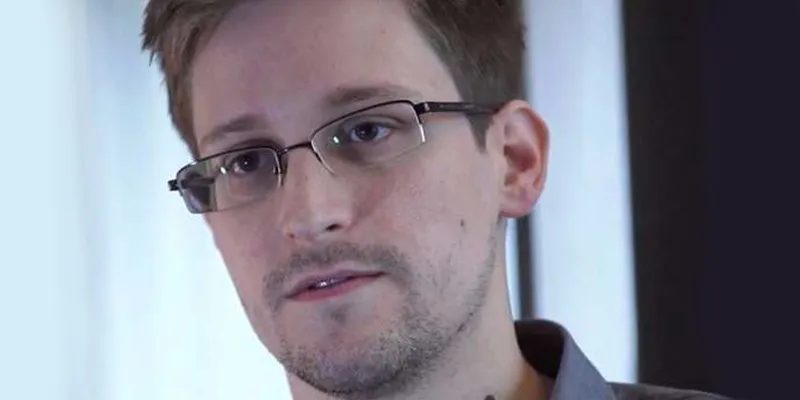Whistle blowers and corporate governance
When an Indigo Airlines passenger was manhandled, the entire country went into sympathy mode. Here, in the land which prides itself on its hospitality (Atithi Devo Bhava) who would have expected another United Airways incident.

But the even more disturbing news to some of the public, was that the employee who shot the video was sacked. Former Air India Chief Ashwani Lohani, who now heads the Railway Board, entered the fray and hit out at IndiGo for the "disgusting" and "inhuman" act. He said, "The subsequent action of the airline in sacking the whistleblower is the icing on the cake of gross misconduct."
Indigo, like other companies in the country, has a policy which protects whistleblowers. Whistleblowers do have a role. After all, if not for them, all the possible wrongs committed by companies would never come to light. The recent furore over corporate governance at Infosys would never have come out in the open if not for the whistleblower at Infosys. And perhaps Narayana Murthy would never have questioned the board.
In the recent past, there have been several well-known whistleblowers around the world.
Edward Snowden is the former NSA contractor who leaked classified documents revealing that the federal government spies on private citizens. Mark Felt another whistleblower was a key to the Watergate scandal which ended Richard Nixon's presidency.
Felt was an FBI figure and secret informant known as “Deep Throat” who helped Washington Post reporters Bob Woodward and Carl Bernstein. Daniel Ellsberg leaked the Pentagon Papers, which was a secret account of the United States' involvement in the Vietnam War. This changed the public’s perception of the war dramatically.
Brian Martin author of "The Whistleblower's Handbook" says, there is real danger in becoming a whistleblower. He describes the many methods used against those who speak out. This often includes harassment, rumour spreading, threats of firing, blocking of promotions, forced job transfers, formal reprimands, legal action or even physical assault.
On February 12, 2017, a whistleblower complaint from Infosys became public, questioning in detail, the events surrounding the severance payment made to the ex-CFO Rajiv Bansal with alleged actions of the Chair of the Board, CEO, COO, General Counsel and Chief Compliance Officer, as well as the ex-CFO. (The Board did not record minutes of the severance pay to CFO Bansal at the time (October 2015) the decision was taken).

According to news reports, Rajiv Bansal was on a three-month severance package, but had already received more than Rs 5 crore, which was then suspended because of the anger over the matter, and the information had become public. When Bansal left in 2015, Infosys agreed to pay him Rs 17.38 crore as severance, about 30 months of pay as compared with three months severance in his appointment letter.
In fact, Infosys received two anonymous letters that February that made a slew of allegations — including that certain M&A deals did not go through the executive council and that there was improper revenue recognition. The letter also questioned the compensation paid to CEO Vishal Sikka.
Whistleblowers and the law

The President of Indigo, of course, in his apology blamed the whistleblower for the entire Indigo incident when he said " The ex-employee who is claiming to be the whistleblower is the one who was screaming at the customer and shouting Roklay Roklay Isay preventing the customer from boarding the bus. He was four years senior to the other two employees".
Wikipedia describes a whistleblower as a person who exposes any kind of information or activity that is deemed illegal, unethical, or not correct within an organisation that is either private or public. Every company and every form of democratic government actually needs them.
Which is why all enlightened governments including the Government of India have passed a legislation on whistleblowers. The Whistle Blowers Protection Act, 2011 is an Act in the Parliament of India which provides a mechanism to investigate alleged corruption and misuse of power by public servants, and also protect anyone who exposes alleged wrongdoing in government bodies, projects and offices. The wrongdoing might take the form of fraud, corruption or mismanagement.

All large companies, including Indigo, have a whistleblower policy (so does Infosys). For example the Indigo Whistle Blower policy in the Chapter 6 provides protection to the Whistle Blower. Para 6.1 states the Whistleblower will not be at risk of suffering any form of reprisal or retaliation including any discrimination or harassment.
Edward Snowden has been a hero to some, but a traitor to others. And what is Snowden's advice to whistleblowers? He says "You have to have a greater commitment to justice than a fear of the law. We all have a limit of injustice, of incivility, of inhumanity in our daily life that we can kind of accept and ignore. We turn our eyes away from the beggar on the street. We also have a breaking point and when people find that, they act."
And no doubt, in both the Infosys and the Indigo cases, there was a breaking point when someone felt that there was a greater commitment to justice than a fear of the law.
Connect with me on twitter
(Disclaimer: The views and opinions expressed in this article are those of the author and do not necessarily reflect the views of YourStory.)







